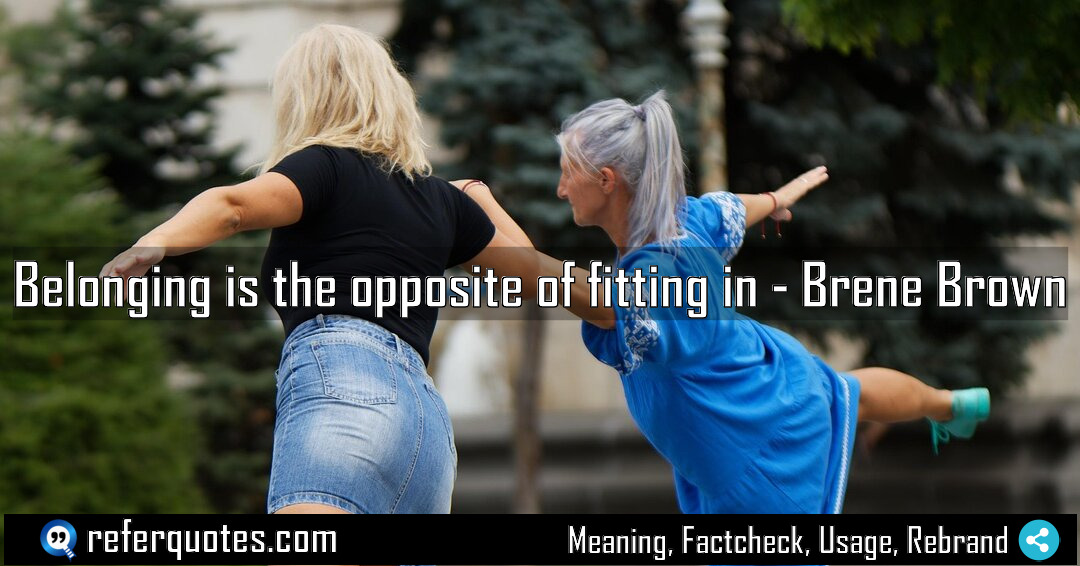You know, I’ve been thinking a lot about that Brene Brown quote, “Belonging is the opposite of fitting in.” It’s one of those ideas that hits you differently the longer you sit with it. It completely reframes how we build real community and connection.
Share Image Quote:Table of Contents
Meaning
At its core, this quote means that true belonging requires authenticity, while fitting in demands conformity. They are fundamentally different paths to connection.
Explanation
Okay, let’s break this down. I’ve seen this play out so many times in my work and honestly, in my own life. Fitting in is a negotiation. It’s you scanning the room and asking, “What do I need to change about myself to be accepted here?” You might hide your quirky hobby, downplay your success, or laugh at a joke you don’t find funny. You’re essentially editing yourself to gain entry. It’s exhausting. And it’s fragile, because if you slip up and show your true self, that acceptance can vanish.
Belonging, on the other hand, is completely different. It’s walking into a space and standing firm in who you are. It’s the deep, resonant feeling that comes when you are seen and valued for your authentic self, not for a performance. You don’t have to negotiate your identity. The beautiful, challenging truth here is that belonging is an inside job first. It starts with you believing you are worthy of connection, exactly as you are.
Quote Summary
| Context | Attributes |
|---|---|
| Original Language | English (3668) |
| Category | Life (320) |
| Topics | belonging (37), identity (102) |
| Literary Style | affirmative (75), contrast (6) |
| Overall Quote Score | 76 (131) |
Origin & Factcheck
This powerful distinction comes directly from Brené Brown’s 2010 book, The Gifts of Imperfection. She’s a research professor who spent years studying vulnerability, courage, and shame. This isn’t just a nice-sounding phrase; it’s a conclusion drawn from thousands of pieces of data. Sometimes you might see this idea floating around without attribution, but it’s 100% born from her groundbreaking work in the United States.
Attribution Summary
| Context | Attributes |
|---|---|
| Author | Brene Brown (257) |
| Source Type | Book (4032) |
| Source/Book Name | The Gifts of Imperfection (46) |
| Origin Timeperiod | 21st Century (1892) |
| Original Language | English (3668) |
| Authenticity | Verified (4032) |
Author Bio
Dr Brene Brown is the author of books such as Daring Greatly and The Power of Vulnerability. The TED talk and Netflix production based on her research reached out to millions of audience. She researches effects of courage and vulnerability in shaping people's work and relationships. She leads the Brené Brown Education and Research Group and provides evidence-based insights into practical tools to help people train themselves
Official Website |Facebook | X | Instagram | YouTube |
Where is this quotation located?
| Quotation | Belonging is the opposite of fitting in |
| Book Details | Publication Year/Date: 2010; ISBN/Unique Identifier: 9781592858491; Last edition. Number of pages. |
| Where is it? | Approximate page from 2010 Hazelden edition |
